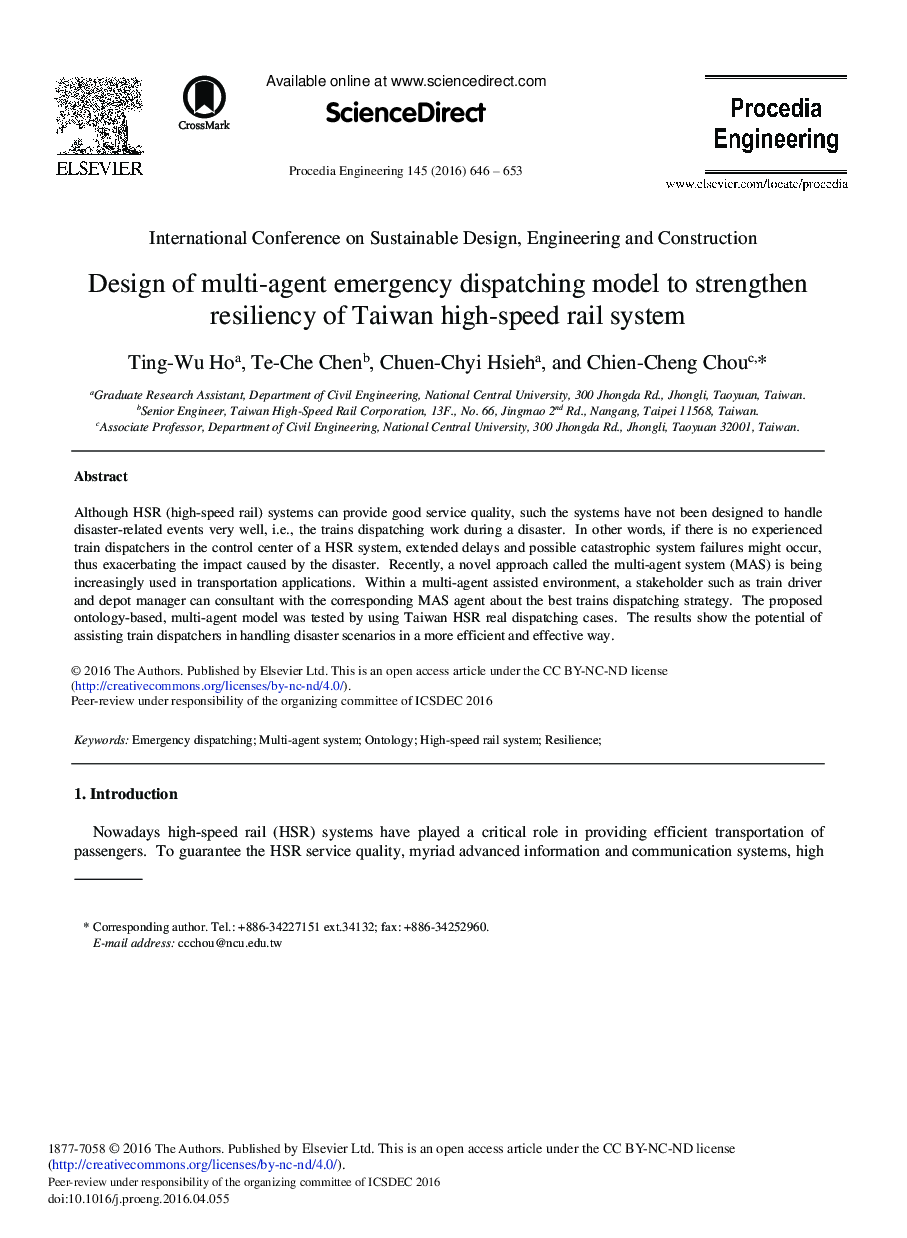| Article ID | Journal | Published Year | Pages | File Type |
|---|---|---|---|---|
| 853725 | Procedia Engineering | 2016 | 8 Pages |
Although HSR (high-speed rail) systems can provide good service quality, such the systems have not been designed to handle disaster-related events very well, i.e., the trains dispatching work during a disaster. In other words, if there is no experienced train dispatchers in the control center of a HSR system, extended delays and possible catastrophic system failures might occur, thus exacerbating the impact caused by the disaster. Recently, a novel approach called the multi-agent system (MAS) is being increasingly used in transportation applications. Within a multi-agent assisted environment, a stakeholder such as train driver and depot manager can consultant with the corresponding MAS agent about the best trains dispatching strategy. The proposed ontology-based, multi-agent model was tested by using Taiwan HSR real dispatching cases. The results show the potential of assisting train dispatchers in handling disaster scenarios in a more efficient and effective way.
